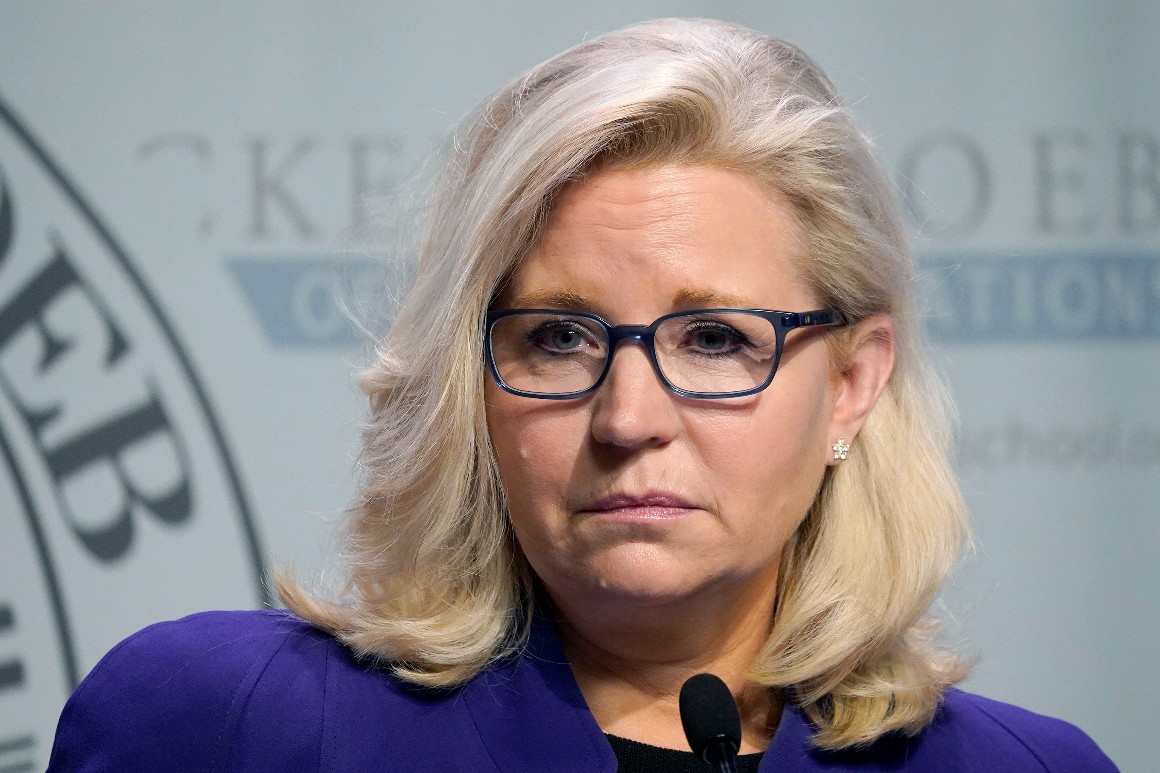
The remaining seven House Republicans who voted to impeach Donald Trump are facing down a vengeful former president, his angry supporters and a summer of primaries. Their message: We’re ready for the fight.
All face challenging roads to reelection, particularly Rep. Liz Cheney, the most outspoken of them, who has enraged so many Wyoming Republicans that they are plotting to alter state election laws to cut off one potential route to political survival.
But they spent 2021 priming for battle, stockpiling campaign cash, seeing which local activists could be mollified and, in some cases, preparing for their first tough election in years. Two of Cheney’s colleagues will have to face far-right challengers in the summer and then try to hang onto Democratic-leaning districts in the fall. Another might have to battle both a fellow Republican incumbent and a Trump-backed state representative to secure the GOP nomination — if he doesn't retire first. And thanks to all-party primary and runoff laws in different states, two others might have to beat the same opponent twice to remain in Congress.
Still, they are gearing up to run again, and they remain defiant even as Trump has thrown support behind challengers to all but one district, helping to clear and consolidate the GOP fields seeking to replace them.
“It was getting a little embarrassing — all them crawling down to Mar-a-Lago begging for endorsements,” Rep. Tom Rice (R-S.C.) cracked, shortly after Trump backed a challenger in his primary. “Probably all those candidates are going to have to have the knees on their pants replaced by patches, from all that crawling.”
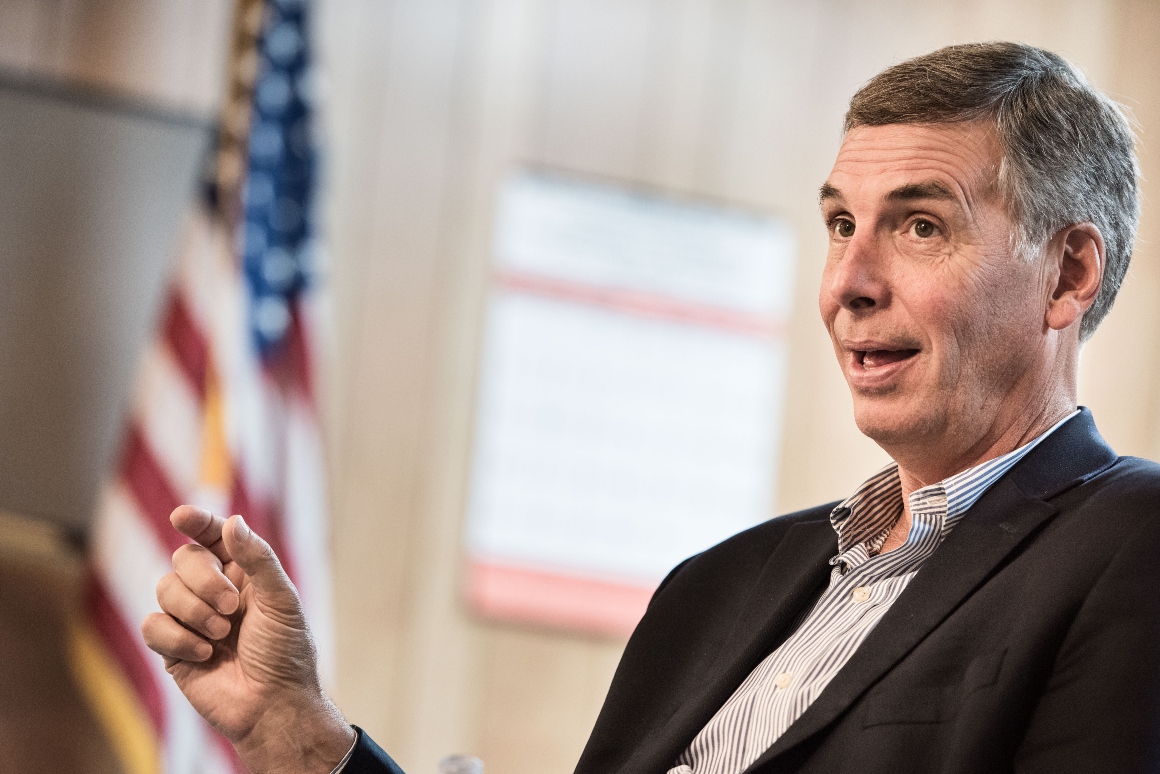
Most GOP operatives agree Rice and Cheney are in the greatest peril of the seven who are running for reelection. Rice’s biggest problem lies in South Carolina's existing rules for primaries, which mandate a primary runoff if no candidate clears 50 percent of the vote. That means Rice can't take advantage of votes split among his opponents.
Several Republicans are running in the June 14 primary, which will likely fracture the anti-incumbent vote, even though Trump himself has waded in to clear the field. He endorsed state Rep. Russell Fry earlier this month and another top contender, Graham Allen, dropped out.
Fry said Trump's support had earned him a surge in volunteers and endorsements, including one from the state House speaker, and volunteers. But a slew of others are still competing in the primary, making a top-two runoff on June 28 likely.
"Listen, we'd love to be in a one on one," Fry told POLITICO in an interview, predicting a runoff would seal his win.
"I think whatever vote Tom is going to get in the primary is the vote that he's going to get in the runoff. It's not gonna move," he said, adding that he planned to make overtures to supporters of the other non-incumbent candidates if he finished in one of the top two slots. "It's an opportunity to consolidate conservatives and push forward toward the runoff and toward a victory."
And as for Rice's charge that he was pleading for an endorsement: "Listen, we never went to Mar-a-Lago," Fry said.
Perhaps the best positioned of the seven for reelection is Rep. David Valadao (R-Calif.), the only House GOP impeachment voter who has not yet garnered a Trump-endorsed challenger. His most formidable opponent, Chris Mathys, raised less than $9,000 and ran for Congress in New Mexico in 2020, placing third in a GOP primary won by now-Rep. Yvette Herrell.
It's not lost on party officials that Valadao is probably the only Republican who can carry his Central Valley district, which President Joe Biden carried by 13 points. And they've shown no signs of abandoning him for crossing Trump.
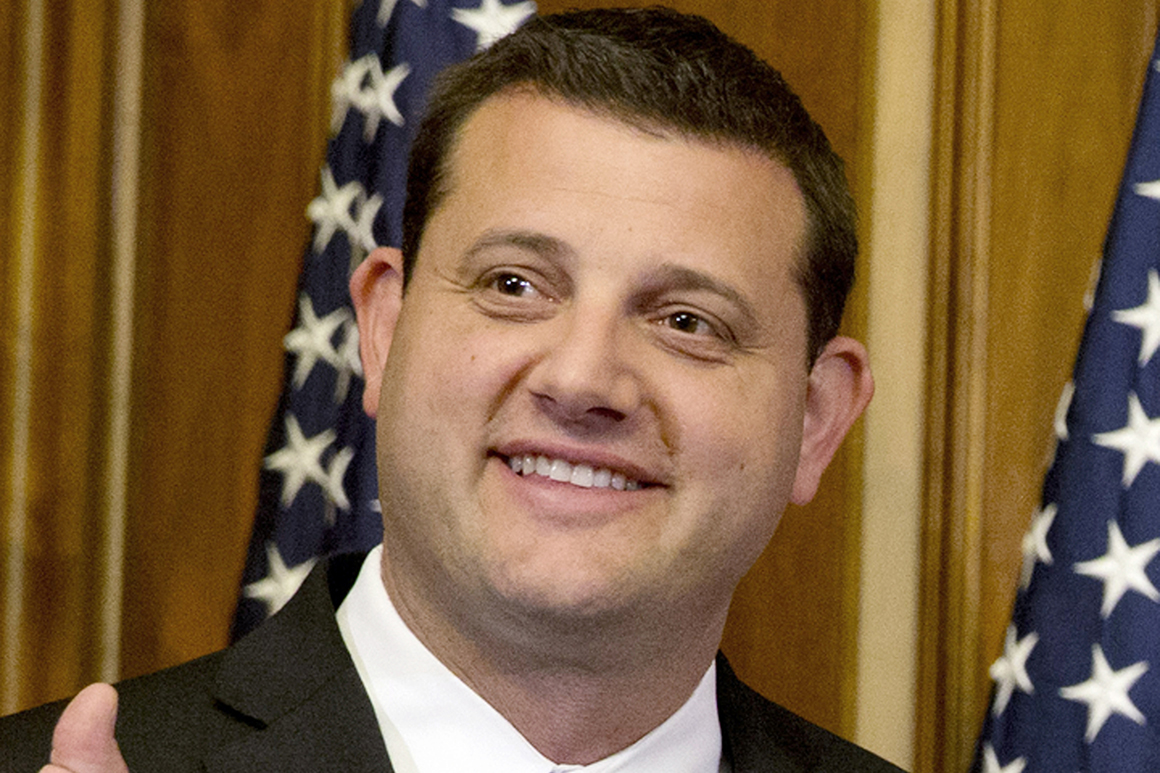
Valadao is personally close with House Minority Leader Kevin McCarthy, who represents a neighboring district, and he has had planning meetings with the House GOP campaign arm, according to sources close to his campaign. His district has a fast approaching filing deadline of March 11, giving other challengers less time to step in.
Unlike Rice and Cheney, Valadao has pointedly avoided direct criticism of Trump and impeachment.
"David understood that it was a really important big vote," said one adviser to his campaign. "But when that really important big vote was done, he got back to the work of being a congressman. He did not want to continue to talk about, litigate, and let that vote define who he is as a congressman."
He will, however, face one of his strongest Democratic opponents yet: state Assemblymember Rudy Salas, who has represented much of the current district in the state legislature.
Rep. Peter Meijer (R-Mich.) is the only other member in a swing district — Biden carried his seat by 9 points. But he has not fared as well as Valadao in avoiding Trump's attention.
The former president endorsed John Gibbs, a former official in his Department of Housing and Urban Development who has a history of promoting conspiracy theories and has signed a pledge to subpoena and investigate Biden's Covid-19 advisor, Anthony Fauci, if elected.
Asked if Gibbs could win a general election in such a blue district, Meijer adopted a skeptical look and said: "I'll let my facial expression speak for itself."
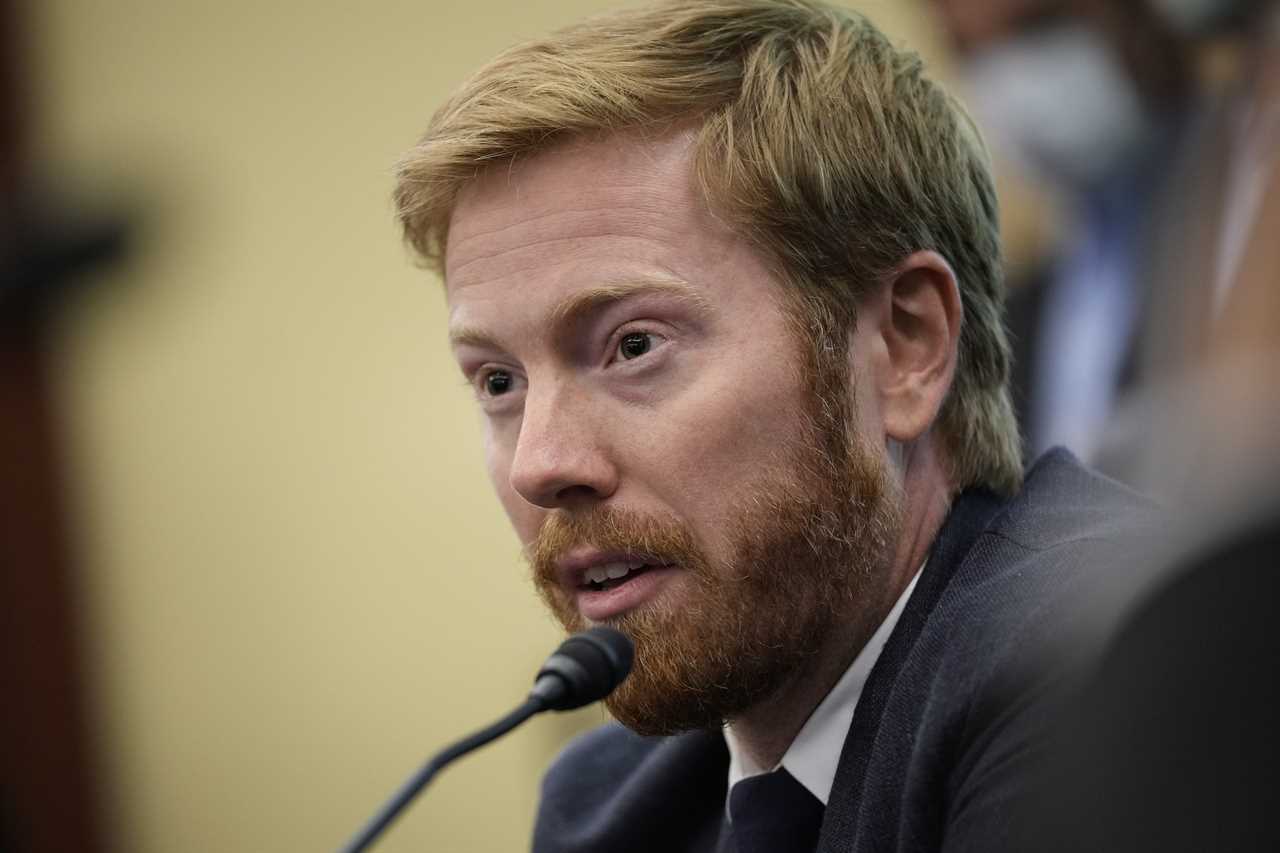
Recent polling conducted for EMILY's List, a Democratic pro-abortion rights group, and obtained by POLITICO paints a concerning picture for Meijer's primary prospects — and demonstrates an opportunity for the Democratic group to elect one of its candidates. In the poll, the incumbent leads an initial primary matchup with Gibbs, 26 percent to 13 percent. But the mid-January survey of 400 likely Republican voters showed 50 percent of Republican voters view Meijer unfavorably, versus 34 percent who have a positive view of him. Fully 62 percent said they would back another GOP candidate over Meijer.
The poll, conducted by Impact Research, also tested how the primary might change after voters learned that Meijer had voted to impeach Trump and that Trump had backed Gibbs. Gibbs jumped into an 18-point lead in that scenario, boosted by Trump's high numbers among Republicans.
The fact that the group tested how the primary ballot changed when voters learned about Trump's support for Gibbs suggests Democrats could be considering meddling in the primary to generate a favorable general election matchup — if Gibbs doesn't have the resources to get that message out himself.
The National Republican Congressional Committee does not spend in primaries, but it can offer institutional support to members. Other establishment-aligned groups could play, especially if the result of the primary could influence their chance to win or keep the district in the fall.
“The NRCC is very supportive of what we're doing," said Rep. John Katko (R-N.Y.), another pro-impeachment Republican who chose to retire rather than run again. "They would have been there for me, I know that.”
Katko represents a deep blue seat that is a top Democratic target. The two other retiring pro-impeachment Republicans, Reps. Adam Kinzinger (R-Ill.) and Anthony Gonzalez (R-Ohio), saw their seats disappear in redistricting.
A fourth member, GOP Rep. Fred Upton of Michigan, is at the top of retirement watch lists. First elected to Congress in 1987, he often plays a will-he-won't-he guessing game each year before the filing deadline. A sign he could be running: Upton posted a massive fundraising quarter of nearly $730,000 at the end of 2021. But he would have to challenge GOP Rep. Bill Huizenga thanks to redistricting.
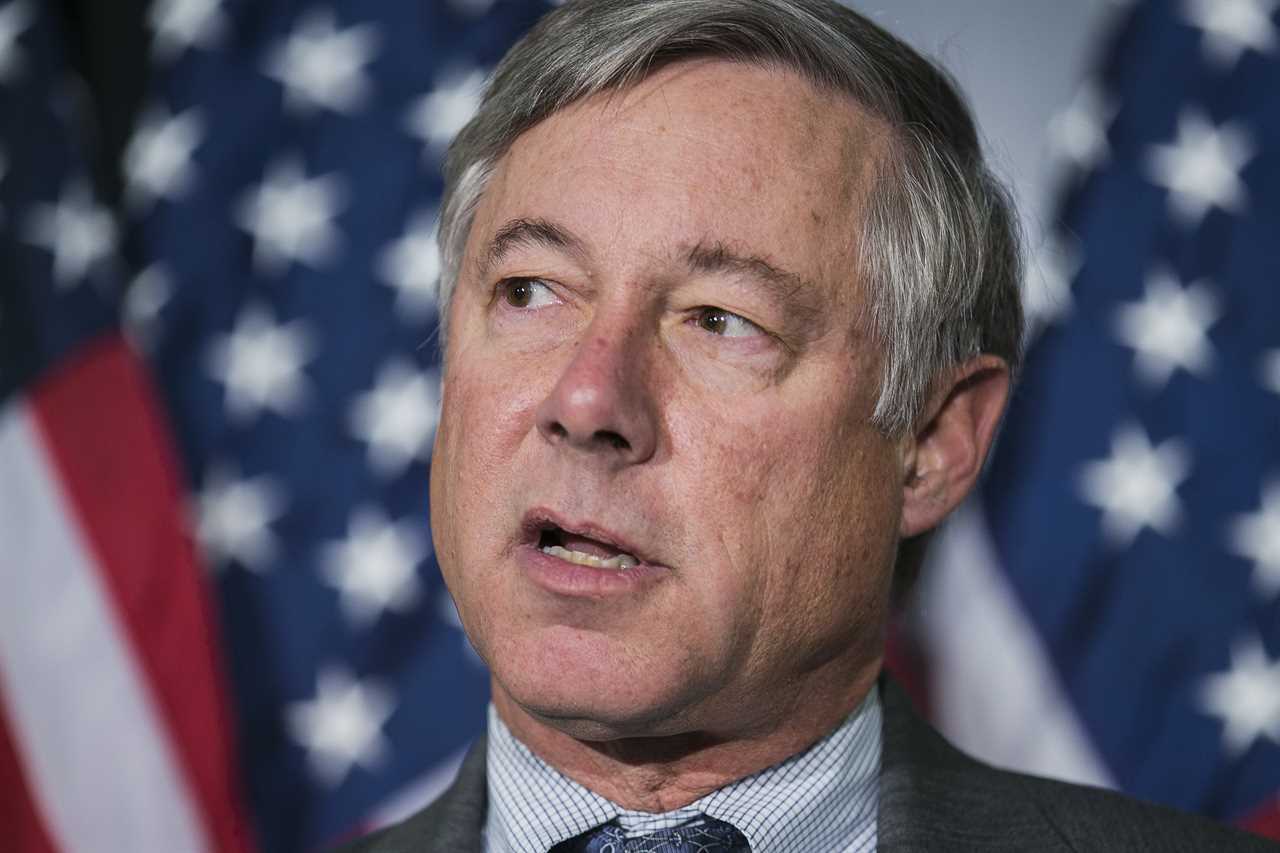
Complicating matters, Trump endorsed state Rep. Steve Carra, who launched a challenge to Upton before a new map was in place. Carra remained in the race.
“That was before there were obviously the new lines drawn," Huizenga said of the endorsement. "So I'm aware that there are people within the organization that are looking at it and are trying to figure that one out."
Trump made his latest endorsement in Washington state against Rep. Dan Newhouse, backing Loren Culp, a former police chief. Against Rep. Jaime Herrera Beutler, he's backed Army veteran Joe Kent. The state will hold an all-party primary in August, where the top two candidates will advance regardless of party. Herrera Beutler's district has far more Democrats than Newhouse's, and it is likely that only one Republican will make it to the general election there.
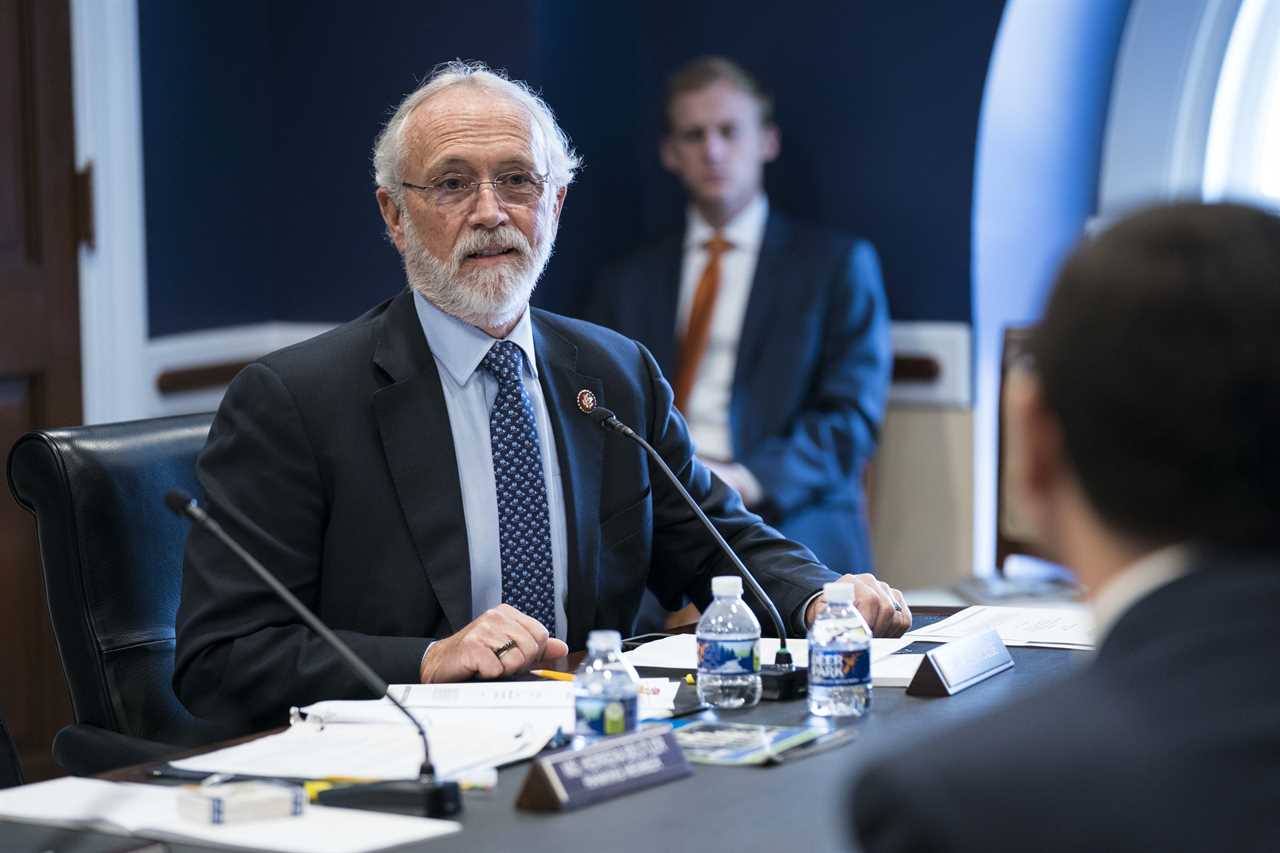
Kent has touted polling showing that Republican will be him. An internal poll from Culp showed him leading Newhouse, but both advancing to the general election. But there's variation in internal polling at this early stage: Another recent survey, this one conducted by pollster aligned with the incumbents, found both members advancing from the all-party primary ahead of their Republican opponents, according to a person familiar with that polling.
In an interview, Newhouse said he believed the top-two system produces a more moderate electorate and that he had "no remorse" about his vote: "Absolutely I think I can win."
"There are certainly some that have strong opinions about what I did and are reluctant to support me again," he continued. "But there are a lot of people that maybe disagreed with my vote, but agreed with me [on] many, many other things over my time here and are willing to overlook that one vote."
Newhouse and the other pro-impeachment Republicans gain some cover from Trump's obsession with ousting Cheney, because he has less time to devote to punishing others. The former president personally lobbied Republicans in Wyoming to introduce a bill that would block Democrats from switching party registration at the eleventh hour to vote in the Republican primary for Cheney.
It's unclear if there are enough Democrats to save Cheney or if this will stop them from helping her.
Wyoming state Senate Minority Leader Chris Rothfuss said he believed the bill could pass — but that it would have limited effect because it only prevents a change in registration in the three months before the primary. Many Wyoming Democrats are already registered as Republicans so they can vote in primaries that are tantamount to the general election.
"The reality of what this will probably do is just lead to more of those types of voters," he said. "This wouldn't stop anybody from crossover voting, they just have to remember to do it ahead of time."
----------------------------------------
By: Ally Mutnick
Title: Defiant GOP impeachment voters gear up for Trump-backed primaries
Sourced From: www.politico.com/news/2022/02/20/pro-impeachment-republicans-summer-primaries-00010288
Published Date: Sun, 20 Feb 2022 07:00:00 EST






